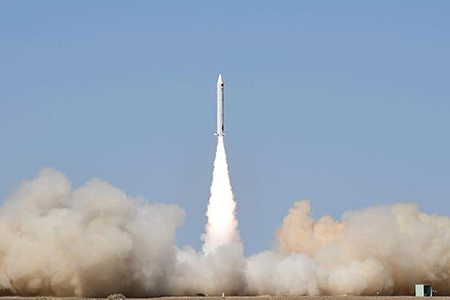In an achievement that continues to highlight China’s rapid progress in space and related explorations, a space startup from the country, iSpace, has become the first private company in China, to put satellites into orbit.
The launch took place on iSpace’s own rocket, using a Chinese Govt. owned launchpad. iSpace’s Hyperbola-1 rocket blasted off from the Jiuquan Satellite Launch Centre at 1 p.m. (0500 GMT) Thursday, sending two satellites and payloads into a predetermined orbit, the company said in a statement on its official Wechat account.
The achievement is notable, considering that previous two attempts at doing so had failed. Beijing-based Landspace attempted to deliver a satellite into orbit in October 2018 but failed. In late March this year, a rocket developed by OneSpace also failed to reach orbit.
China has been witnessing an aggressive space race within the country’s startups. That has largely been fueled by the country’s desire to create a complex network of micro-satellites as well as usual satellites for remote sensing and imaging purposes. These space startups, backed primarily by venture funds from within China, have been able to develop low cost rockets for such launches, and have hence seen tremendous support from the government.
And yes, while it would be wrong to compare this growing Chinese space startup ecosystem to that in the US, China’s usually aggressive development pace could soon see these startup joining the leagues of their US counterparts in the next decade.
The State Council, or cabinet, said in a white paper in December 2016 the space industry was an important part of China’s overall development strategy. President Xi Jinping has made becoming a space flight superpower a priority for the government since coming to office in 2012. The government aims to send a permanent manned space station into orbit by around 2022.
The Tech Portal is published by Blue Box Media Private Limited. Our investors have no influence over our reporting. Read our full Ownership and Funding Disclosure →






